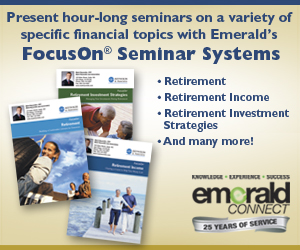Each day, One Day Closer provides the articles from across the worldwide web that help you move one day closer to a sound financial situation, a retirement you always envisioned, a safe and secure financial future for you and your family. This will be added to throughout the day with important articles.
Quote of the Day:
First you forget names; then you forget faces; then you forget to zip up your fly; and then you forget to unzip your fly. - Branch Rickey
Articles of the Day:
What is the best way to pay bills? SmartMoney answers that question in this article. http://sm.wsj.com/tTCH5p
The true myth of the life-work balance. http://bit.ly/udobu8
The keys to making your savings last as long as you do. http://usat.ly/uqSdfm
Here is another year-end tax tip. http://bit.ly/txfMUJ
This article talks about 3 things every investor can control. http://sm.wsj.com/w3gp8G
Americans' top concern? Running out of money in retirement. This survey details the financial fears of people across the country (admitting your fear is the first step to fixing it). http://bit.ly/tqzI3c
Making Your Savings Last, Year-End Tax Tip and 3 Things Every Investor Can Control
Mailbag
Thursday's Slott Report Mailbag

Consumers: Send in Your Questions to [email protected]
Q:
Ed:
I have your book, but unfortunately it is at my cabin so I don't have access right now. I am inheriting a Roth IRA from my wife, who recently passed away at 65. It was converted to a Roth in December 2008.
First question: Is it better to keep it as a separate Roth IRA, or add it into my existing Roth IRA?
Second question: Do I have to take RMDs on this account now or later?
Thanks,
John in AZ
A:
Question 1. As a spouse beneficiary you have two choices, other than taking a complete distribution.
A. You can establish a beneficiary Roth IRA or
B. Make it your own Roth IRA
If you select option B you will not have to take required minimum distributions (RMDs). With Option A, you would be required to take RMDs beginning in the year the deceased spouse would have attained age 70 1/2. Option B gives you the most flexibility. You can take distributions at any time (or not). It is your option. Distributions will be tax-free. Make sure you name your own beneficiary when you select your option.
Question 2. If you make it your own Roth IRA, you could combine it with your own Roth IRA.


 Articles That Move
Articles That Move







0 comments:
Post a Comment